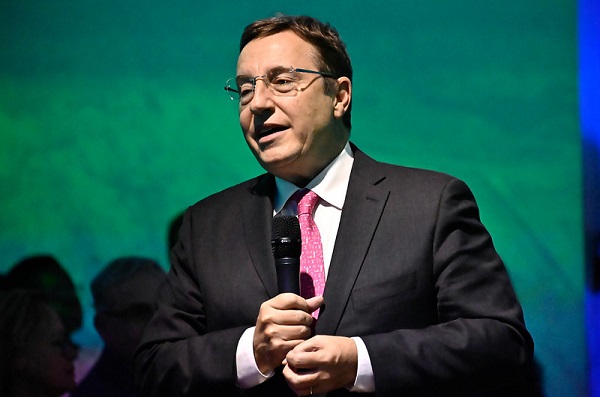The Green Climate Fund(GCF) board has been advised to re-accredit the UN development agency, despite unresolved corruption claims against projects in Samoa and Armenia.
The UN Development Programme is seeking to renew its partnership with the UN’s flagship climate fund under the shadow of unresolved corruption allegations at two of its projects.
The Green Climate Fund was created to help poor countries curb their emissions and cope with climate impacts. It depends on agencies like UNDP to deliver projects in poor nations.
The GCF accreditation panel is recommending the fund renew ties with the UN development agency, its largest implementing partner, at a virtual board meeting this week, despite claims of corruption and concerns over weak implementation of UNDP policies at its regional bureau.
Documents for the meeting state that allegations of corruption have been raised against UNDP-led projects in Armenia and Samoa, approved by the fund. The GCF is awaiting the outcome of an UNDP investigation into the claims.
And donor countries are still pressing UNDP to show evidence that remedial action has been taken over a long-running corruption scandal at one of its programmes in Russia.
Allegations of misappropriation of millions of dollars in the programme designed to promote energy efficiency in Russia, funded by the Global Environment Facility, seriously damaged the agency’s reputation.
A source with knowledge of the dossier told Climate Home News that UNDP’s bid to renew its accreditation with the GCF was “cynical” and the UN body should first “put its house in order”.
A UNDP spokesperson told Climate Home the agency had gone through “an extensive and transparent due diligence process as part of the re-accreditation process” and insisted that the allegations made against its GEF-related programmes have been “significantly investigated”.
He added the agency was “swiftly implementing recommendations” in response to the case and strengthening its oversight policies.
UNDP is the biggest implementing partner of the GCF both in the number of funded projects and volume of finance secured. As the end of July, the GCF board had approved 35 UNDP projects around the world worth US$2.4bn.
Liane Schalatek, a climate finance expert with the Heinrich Boell Foundation and a close GCF observer, described the re-accreditation of UNDP as “tricky” given its role as a “go-to international implementing partner for GCF projects for many developing countries”.
At stake in this GCF board week’s meeting is whether UNDP has robust enough systems and oversight in place across the organisation to receive, investigate and appropriately act on allegations of corruption and mismanagement.
Information shared by sources with Climate Home point to a culture of covering up fraud and failing to protect whistleblowers, which they say still hasn’t been fully addressed.
Six UNDP projects were on the GCF’s watch list for close monitoring as of July, according to fund documents.
A US$66 million flood management project in Samoa, which Climate Home previously reported raised concerns among technical experts, and a US$116m project to improve energy efficiency in Armenia through retrofitting building both had corruption allegations raised against them.
UNDP did not respond to specific questions about allegations of corruption at these projects.
A GCF spokesperson told Climate Home News the fund has “a zero-tolerance policy to integrity violations” and was “working closely with UNDP to ensure that our projects are correctly managed”.
He added UNDP had been “fully transparent” during the review process and that the accreditation panel concluded that it was able to appropriately deal with misconduct allegations.
Recommendations for re-accreditation were made on condition that the UN body rolls out anti-money laundering policy across the organisation and demonstrates in 2024, through an independent study, that corrective actions have been implemented.
In July, UNDP head Achim Steiner, told the executive board, in an update seen by Climate Home, that “UNDP – and I personally – have zero tolerance for any fraud, misappropriation or irregularities”.
Yet, nearly seven years after a whistleblower alleged that Russian officials were awarding lucrative contracts to friends and family in the GEF-funded project, no one has yet been held publicly accountable. The full story about the decade-long Russia programme, which closed in 2017, is yet to emerge.
An independent review published earlier this year concluded that issues of weak governance were “systemic” and that “a number of individuals were able to game the relatively weak systems of governance and technical capacity”. The whistleblower case was handled unsatisfactorily, it found.
Steiner told the board he had been provided “with a comprehensive view” of the issues and that individual responsibilities had been established. “Half a dozen” people still working for UNDP have been given formal reprimands, including administrative leave while steps towards disciplinary processes are being taken, he said.
Among donors, some concerns over UNDP’s ability to handle corruption allegations remain.
After first writing to Steiner in March 2020 to express concerns, the Netherlands froze €10m (US$11 million) of its voluntary €30m (US$34 million) annual contribution to UNDP, citing dissatisfaction with how UNDP responded to the allegations.
A spokesperson for the country’s foreign ministry told Climate Home that “UNDP should restore confidence that the alleged malpractices have been adequately investigated and that lessons are broadly drawn to prevent similar problems in the future”.
At a GEF council meeting in June, Konrad Specker, of Switzerland, said his government shared “fundamental concerns” over UNDP. He added that recommendations and policy changes “do not really address the questions related to management behaviour and organisation culture”.
“We believe that unless these issues are addressed, it remains questionable to what extent the management actions being taken will produce the real change on the ground that has been advocated for,” he warned.
SOURCE: CLIMATE HOME/PACNEWS














